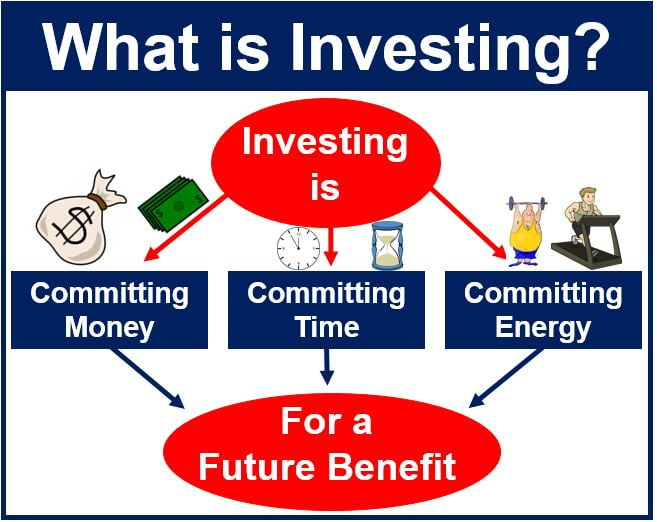Investing refers to things people, companies and governments do to create more wealth, make money grow, boost production, and improve people’s standard of living. The term may also refer to allocating time for something in the hope of future benefit, as in “He’s investing four years of his life studying at university.”
Examples of investing are the purchase of property, bonds, stocks and other financial assets in order to make a profit. It also includes saving money in an interest-paying bank account or buying an insurance policy that pays bonuses.
If you own a business, and spend money on things that will make it more successful and profitable, you are investing.
If you own a house and spend $10,000 making it look nicer before you rent it out, you are investing that money in order to secure a future income.
 Investing can take many forms, but they all have one thing in common – the goal of a future benefit.
Investing can take many forms, but they all have one thing in common – the goal of a future benefit.
Investing versus saving
Investing is not the same as saving. Saving is a plan to set some of your earned income aside over a short period in order to reach a pre-determined amount. Investing, when talking about stocks and shares for example, is a much longer-term activity.
American billionaire investor Warren Buffett once said “If you aren’t thinking about owning a stock for ten years, don’t even think about owning it for ten minutes.”
Put simply, in finance investing is a long-term action that is primarily accomplished by having your money creating more money for you. The action of investing is done by an investor.
According to Sorted, part of New Zealand’s Commission for Financial Capability:
“You become an investor when you put your money into things that can earn income or grow in value. The general aim is to earn at least an after-tax return greater than the rate of inflation. Being an investor also involves a degree of risk. Generally, the higher the return, the higher the risk.”
When we invest, we expect the action to bring us at least one of the benefits listed below:
- – that the asset will appreciate in value,
- – that the asset will provide dividends,
- – that the asset will earn interest,
- – that the asset will earn rent.
The Oxford Dictionaries defines investing as follows:
“Putting (money) into financial schemes, shares, property, or a commercial venture with the expectation of achieving a profit,” or “Devoting one’s time, effort, or energy to a particular undertaking with the expectation of a worthwhile result.”
For more than 100 years, individuals in North America, Europe and other parts of the world have formed groups called investment clubs, which pool together their money and knowledge with the aim of investing with more successful outcomes.
